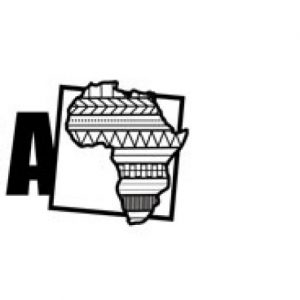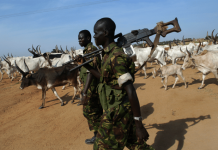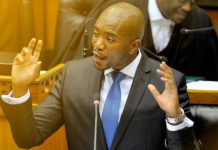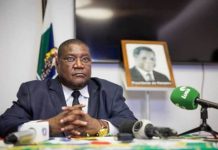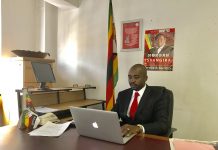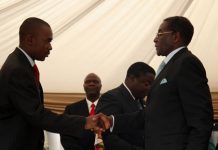Harare: Zimbabwe’s harmonised elections are a critical test for the country’s reform process, European Union Chief Election Observer Elmar Brok told journalists in his first press conference in the country.
The EU, which has deployed 44 long-term observers ahead of the July 30 elections, is observing the country’s polls for the first time since 2002.
“These elections are a critical test of Zimbabwe’s reform process. The EU wishes to accompany Zimbabwe in its transition to satisfy the legitimate expectations of the Zimbabwean people and stands ready to engage further if the appropriate conditions are met. Elections are, in this regard, an essential step in a long and challenging reform process,” Brok said.
“Given the context of past contentious elections, great efforts need to be made to ensure public and political confidence in the 2018 polls. In this regard, enhanced transparency and inclusivity, confidence in the integrity of the voter roll, the peaceful conduct of the polls and an environment whereby voters are truly able to express their will and cast a vote in secret are imperative.”
Brok yesterday met President Emmerson Mnangagwa to brief him on the purpose of their visit to Zimbabwe.
Talking Points by Brok at the Press Conference
·It gives me great pleasure to welcome you to my first press conference as Chief Observer of the EU Election Observation Mission for the 30 July harmonised elections in Zimbabwe.
·As I think you will be aware by now, the EU was invited to observe these elections and our team has been on the ground since 6 June. At this time we have 10 analysts here in Harare and 44 long-term observers covering all 10 provinces.
·The presence of the EU Election Observation Mission demonstrates the European Union’s commitment to the conduct of peaceful, inclusive, transparent and credible elections in Zimbabwe.
·Over the past weeks, our observers have been meeting a broad range of stakeholders, including the election commission, political parties, candidates, civil society and media. For the election period itself we will have some 140 observers in total covering voting and counting all over the country, and the EU EOM will remain in the field to observe the results process and any post-election legal disputes.
·In line with usual practice, we will issue our statement of findings only after the election, in order to reflect on the entire process up to that point.
·During this visit, I have had the pleasure to meet with the President of Zimbabwe, the Chair of the Zimbabwe Election Commission, opposition candidates and parties, civil society groups, journalists, other international observers and representatives of EU Member States in Zimbabwe.
·These elections are a critical test of Zimbabwe’s reform process. The EU wishes to accompany Zimbabwe in its transition to satisfy the legitimate expectations of the Zimbabwean people and stands ready to engage further if the appropriate conditions are met. Elections are, in this regard, an essential step in a long and challenging reform process.
·Given the context of past contentious elections, great efforts need to be made to ensure public and political confidence in the 2018 polls. In this regard, enhanced transparency and inclusivity, confidence in the integrity of the voter roll, the peaceful conduct of the polls and an environment whereby voters are truly able to express their will and cast a vote in secret are imperative.
·In making our assessment of the elections we conduct a comprehensive and impartial analysis of the whole electoral process on the basis of relevant international and regional standards for elections to which Zimbabwe has committed itself, as well as taking account of national legislation.
·We will assess the legal framework, the performance of the election administration, voter registration, candidate nominations, campaign activities, respect for fundamental freedoms, access to and conduct of the media, voting and the counting and transmission of results, and the period after the polls. If a second round of voting is required, the mission will remain in Zimbabwe for this.
·During my visit, I have listened to my interlocutors and heard their perspectives and concerns. As a mission we will continue to do this over the coming weeks, up to and beyond election day to ensure we are in a position to later offer an informed and impartial assessment.
·At this stage I do not want to start offering assessments on individual aspects of the process, as it would be premature for me to do so. But I feel it is important to stress that in addition to the technical management of the process, great efforts need to be made to ensure transparency and inclusivity, enhancing the confidence of all stakeholders in the credibility of the preparations. At the end of the day elections are both a technical and political exercise and so the confidence and trust of political stakeholders needs to be an important consideration.
·The creation of a brand new biometric voter roll for the elections is welcomed. This has been a major effort by ZEC. However, I understand that a number of contentious issues related to the roll have been evident, including the process for sharing the roll. We look forward to hearing the results of the CSO voter roll audits currently being undertaken and hope that ZEC will be in a position to ensure the list is as accurate and inclusive as possible for election day, with any anomalies addressed.
·The political campaign is in full swing. I was very saddened to hear of the 23 June attack on the presidential rally in Bulawayo, and my thoughts are with all those affected. There is no place for violence in an election.
·More generally, it is clear that all parties have been able to hold rallies and meet voters across the country, which is promising. We hope the campaign can continue in this manner and with the absence of inter- or intra-party violence. We will continue to follow this and will be assessing campaign freedoms, the use of state resources, any violent incidents and also if media, and notably state media, provide fair and balanced coverage or not.
·An EU EOM has not been present for an election in Zimbabwe since 2002. However, it is clear that elections in the country have often been a source of dispute and even conflict. As such there is a low level of trust and ordinary people are vulnerable to being unduly influenced or coerced. I would like to see all responsible institutions, and local leaders, assure the people of Zimbabwe that they are able to express their will in a secret vote on 30 July without coercion or fear of recrimination.
·What I want to stress here is that, in making our assessment, we will consider the environment and context for the elections alongside the process in and around election day.
·As I mentioned at the outset, these elections are a critical test of Zimbabwe’s reform process. The EU Election Observation Mission will undertake its duties in order to offer an impartial and informed assessment after election day. In the meantime we hope that the presence of EU observers can be a source of support for the conduct of credible elections.

